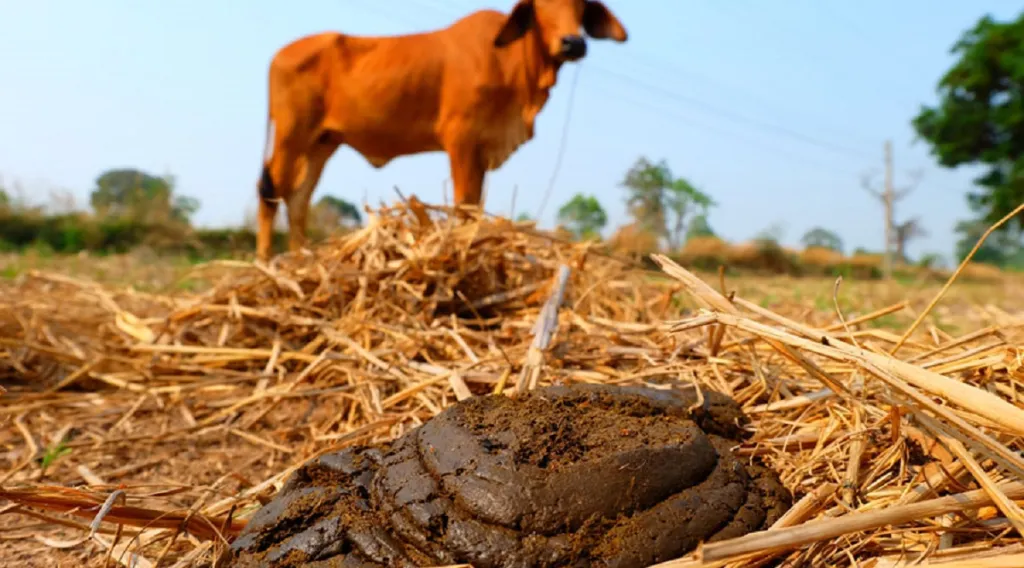It looks like you're using an Ad Blocker.
Please white-list or disable AboveTopSecret.com in your ad-blocking tool.
Thank you.
Some features of ATS will be disabled while you continue to use an ad-blocker.
share:

Link
Cryptocurrency mining, mainly with Bitcoins and Ethereum, has always been controversial due to the energy and resource consumption required to mine the currency. However, Bitcoin has a new concern, as a recent report outlines that it uses 4,227 gallons of fresh water for every single transaction, either for buying or selling. Because of these transactions, many countries, such as the United States, could face freshwater shortages if the currency becomes more widely adopted.
This detailed report emphasizes Bitcoin's impact on worldwide water security while comparing it to Kazakhstan, which has much larger freshwater consumption and some mitigation solutions. This study was done by a data scientist at DNB and a researcher for VU Amsterdam, Alex De Vries, who stressed that its water consumption footprint has increased over the years. He also calculated that the computational process behind the Bitcoin network uses 8.6 to 35.1 billion liters of water annually in the United States or roughly one swimming pool's worth of water per transaction.
So not only does it use huge amounts of power as electricity to run the server farms, each transaction also uses a whole pool's worth of water for cooling and air humidification.
Let's say that again in a new paragraph. Bitcoin uses 4,227 gallons of fresh water, not sea water, fresh water for each transaction. One swimming pool of water for a transaction. Bitcoin did 707,876 transactions on December 3, 2023. Today, at the moment I'm writing this, 514,962 transactions have taken place. That's over a half a million pools of fresh water used up just today to run some phantom transactions.
Transactions per day
This is not sustainable. Especially since we are running into water shortages and farmers are scrambling to find the water needed for their crops in some places, and during certain months. I think it's far more important for our farmers and our agriculture to have fresh water, then some cartels around the world running their transactions and laundering their money.
Our food supply is more important than their money laundering.
edit on 6-12-2023 by Mahogani because: word change
Really stupid this is even a problem
We could easily water cool servers and use the hot water that's already needed reducing overall energy use
We could easily water cool servers and use the hot water that's already needed reducing overall energy use
a reply to: Mahogani
I rather doubt that number of gallons is anywhere near that high. The person stating it does not seem to understand liquid cooling systems. Much like a car, there is a small amount of water in the system that is recirculates many times in a given period for cooling. You don't have to fill up a water tank in your car like you do the gas tank do you? Many hundreds of gallons go through a cars water pump per trip yet it is only occasionally that it needs more water.
This Amsterdam scientist needs to consult a water cooling systems manual before making such outrageous claims. Being a scientist in one field does not make them understand other fields.
I rather doubt that number of gallons is anywhere near that high. The person stating it does not seem to understand liquid cooling systems. Much like a car, there is a small amount of water in the system that is recirculates many times in a given period for cooling. You don't have to fill up a water tank in your car like you do the gas tank do you? Many hundreds of gallons go through a cars water pump per trip yet it is only occasionally that it needs more water.
This Amsterdam scientist needs to consult a water cooling systems manual before making such outrageous claims. Being a scientist in one field does not make them understand other fields.
edit on 6-12-2023 by BeyondKnowledge3 because: (no reason given)
originally posted by: KKLOCO
a reply to: Mahogani
This is ridiculous as it’s all electronic.
What exactly does BC use water for?
It's in the article, and also in my OP... cooling and air humidification. Without that, the servers burn down. Nothing works without cooling.
And it takes one pool's worth of water to cool the servers as they process one single transaction.
a reply to: Mahogani
These numbers are way off.
Ironically this is the math I would have used to show there’s no way the article is right.
My guess is the person who wrote the article used hyperbolic math like police departments after a drug bust.
These numbers are way off.
Let's say that again in a new paragraph. Bitcoin uses 4,227 gallons of fresh water, not sea water, fresh water for each transaction. One swimming pool of water for a transaction. Bitcoin did 707,876 transactions on December 3, 2023. Today, at the moment I'm writing this, 514,962 transactions have taken place. That's over a half a million pools of fresh water used up just today to run some phantom transactions.
Ironically this is the math I would have used to show there’s no way the article is right.
My guess is the person who wrote the article used hyperbolic math like police departments after a drug bust.
I would think that any water "consumed" in the process could be reclaimed (unless it's evaporating outdoors). Water doesn't just disappear.
Something in this story is off.
Something in this story is off.
a reply to: CriticalStinker
The numbers are certainly wrong but they do use a lot of water for cooling servers everywhere due to it being far cheaper to use evap coolers
There are companies working on what I said before cooling servers and giving people free hot water
The numbers are certainly wrong but they do use a lot of water for cooling servers everywhere due to it being far cheaper to use evap coolers
There are companies working on what I said before cooling servers and giving people free hot water
a reply to: underpass61
Basics of how evap coolers work is they vent outdoors in a closed loop they do not work at all
Basics of how evap coolers work is they vent outdoors in a closed loop they do not work at all
a reply to: Mahogani
Yeah, right ...
Brought to us, no doubt, by the same crowd that told us that the polar ice caps were going to melt multiple times over the last few decades and that by now California and New York would be under water.
I'm calling it ...


:
Yeah, right ...
Brought to us, no doubt, by the same crowd that told us that the polar ice caps were going to melt multiple times over the last few decades and that by now California and New York would be under water.
I'm calling it ...


:
edit on 2023 12 6 by AwakeNotWoke because: I could.
a reply to: Markovian2
Not all the transactions are done by servers. To some extent crypto is decentralized, meaning anyone can run nodes.
Many of these nodes are GPU farms, which are typically open air, fans and or air cooling.
Some operations use internalized liquid cooling, so water isn’t refreshed after each use.
And lastly we’re ignoring a lot of bitcoin transactions are either lightning protocol or done in an exchange which isn’t using the Bitcoin blockchain to complete the transaction. The broker holds X amount of massive bitcoins, the users then trade rights to portions of that pie (ironically like fiat, the antithesis of crypto).
But the whole point is there’s a lot of nuance being ignored. It’s like cops finding a few kilos of weed and saying it was millions worth at street value. Hyperbolic math.
Not all the transactions are done by servers. To some extent crypto is decentralized, meaning anyone can run nodes.
Many of these nodes are GPU farms, which are typically open air, fans and or air cooling.
Some operations use internalized liquid cooling, so water isn’t refreshed after each use.
And lastly we’re ignoring a lot of bitcoin transactions are either lightning protocol or done in an exchange which isn’t using the Bitcoin blockchain to complete the transaction. The broker holds X amount of massive bitcoins, the users then trade rights to portions of that pie (ironically like fiat, the antithesis of crypto).
But the whole point is there’s a lot of nuance being ignored. It’s like cops finding a few kilos of weed and saying it was millions worth at street value. Hyperbolic math.
Also, I’d implore someone to look up the cost per transaction.
My guess is it’s far cheaper than 4K gallons of water, electricity, and averaged cost of equipment.
So, this would beg the question, are people running the transactions on charity? Or are they profiting? And if they’re profiting, that would mean cost per transaction costs more than the above.
My guess is it’s far cheaper than 4K gallons of water, electricity, and averaged cost of equipment.
So, this would beg the question, are people running the transactions on charity? Or are they profiting? And if they’re profiting, that would mean cost per transaction costs more than the above.
originally posted by: CriticalStinker
a reply to: Mahogani
These numbers are way off.
Why do you think so?
When you read this (a link within the main OP link) original paper in Cell magazine, which part do you think is wrong?
Since this is a publicly reviewed paper, if you were a scientist, and you were pier reviewing this paper, which part would you object to? With facts and numbers.
_______
Disclosure: I've read the paper but I can in no way verify or refute any of its findings. I don't have the knowledge, this is not my field, and I don't have the resources, or the staff to do that.
edit on 6-12-2023 by Mahogani because: (no reason given)
originally posted by: underpass61
I would think that any water "consumed" in the process could be reclaimed (unless it's evaporating outdoors). Water doesn't just disappear.
Something in this story is off.
They cover that in the paper. They are taking everything into account for this study, water that can be reclaimed and reused, and that which can not be and is gone.
If they had more access and information, the estimates would be more accurate. But this industry mostly operates in the dark. They don't report much, if anything.
In addition to electricity, Bitcoin miners also require water, which is utilized in two main ways. The first involves onsite (direct) water use for cooling systems and air humidification. Water usage depends on cooling system types and local climate conditions. It is important to differentiate between water withdrawal and water consumption in terms of this usage. Water withdrawal pertains to the water taken from surface water or groundwater sources, while water consumption refers to the portion of water that becomes unavailable for reuse after withdrawal, primarily due to evaporation in cooling systems. Water consumption is not extensively studied in Bitcoin mining or generic data center research, as reliable data on water consumption factors are challenging to obtain.
a reply to: Mahogani
ROTFLMAO!!!!!
Dude, you really should understand something before you fall for such utter absurdities as these.
This, like the notion that bitcoin is boiling the oceans from its power usage, are simply outright utter LIES.
Bitcoin is being vilified because it is a massive threat to tptb and their ability to create money out of thin air that you and I have to work for.
ROTFLMAO!!!!!
Dude, you really should understand something before you fall for such utter absurdities as these.
This, like the notion that bitcoin is boiling the oceans from its power usage, are simply outright utter LIES.
Bitcoin is being vilified because it is a massive threat to tptb and their ability to create money out of thin air that you and I have to work for.
a reply to: Mahogani
So by your second quote, they are counting the water use two times. You can't count the water taken in and the water used up and add them together. That is the same water.
Got any other mistakes in the article you brought up in the op?
Edit: You also can't count the evaporated water as used up and unavailable as that just turns into rain later replenishing the source of the water.
So by your second quote, they are counting the water use two times. You can't count the water taken in and the water used up and add them together. That is the same water.
Got any other mistakes in the article you brought up in the op?
Edit: You also can't count the evaporated water as used up and unavailable as that just turns into rain later replenishing the source of the water.
edit on 6-12-2023 by BeyondKnowledge3 because: (no reason given)
This is how science works, folks. People do a study for a long time, using a lot of money and research, and then they file that paper with an archive
or a reputed magazine, like the Cell magazine. Then, other scientists do their studies and they either confirm or refute their findings. Until that is
done, the original paper is considered a new fact. If it's updated, or new findings surface, the fact is also updated.
How cool would it be if someone from ATS was to file a paper refuting something like this!? Imagine how much traffic that would bring here if someone could do that.
Anyone have the knowledge in this field?
How cool would it be if someone from ATS was to file a paper refuting something like this!? Imagine how much traffic that would bring here if someone could do that.
Anyone have the knowledge in this field?
edit on 6-12-2023 by Mahogani because: missing word
new topics
-
The truth lets admit it
Aliens and UFOs: 4 hours ago -
Mass Shooting Towson, Maryland - 7 shot, 1 possibly dead
Social Issues and Civil Unrest: 7 hours ago
top topics
-
Trump formally clinches Electoral College victory
2024 Elections: 12 hours ago, 17 flags -
Was Biden's Mass clemency and pardons one last cash grab?
US Political Madness: 17 hours ago, 10 flags -
What's the buzz
General Chit Chat: 16 hours ago, 8 flags -
Mass Shooting Towson, Maryland - 7 shot, 1 possibly dead
Social Issues and Civil Unrest: 7 hours ago, 5 flags -
Elon Musk has Meeting with Nigel Farage at Mar-a-Lago
Regional Politics: 16 hours ago, 4 flags -
The truth lets admit it
Aliens and UFOs: 4 hours ago, 3 flags
active topics
-
And Here Come the Excuses!!
General Conspiracies • 202 • : andy06shake -
Mood Music Part VI
Music • 3738 • : BrucellaOrchitis -
Labour Plotting to Postpone May's Council Elections ?
Regional Politics • 9 • : Freeborn -
Russias War Against Religion in Ukraine
World War Three • 27 • : Freeborn -
Why isn't Psychiatry involved?
Social Issues and Civil Unrest • 23 • : BrucellaOrchitis -
-@TH3WH17ERABB17- -Q- ---TIME TO SHOW THE WORLD--- -Part- --44--
Dissecting Disinformation • 3748 • : AianawaQ1320 -
The truth lets admit it
Aliens and UFOs • 7 • : SteamyAmerican -
Elon Musk has Meeting with Nigel Farage at Mar-a-Lago
Regional Politics • 6 • : CriticalStinker -
The Mystery Drones and Government Lies --- Master Thread
Political Conspiracies • 122 • : Flyingclaydisk -
Quantum Computer’s, Plasmoid’s, & UAP’s
Aliens and UFOs • 24 • : Arbitrageur
